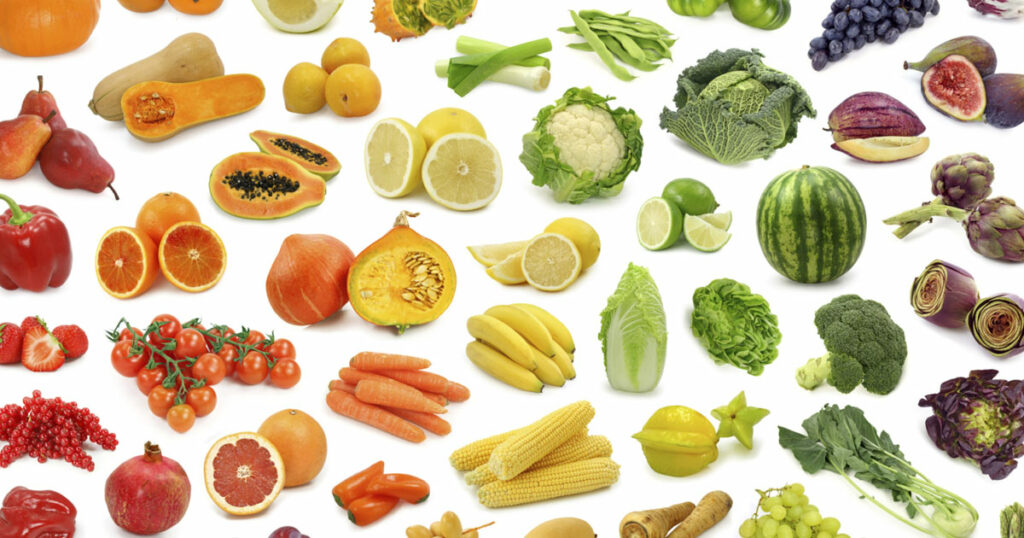A bowl of oatmeal every morning, a handful of nuts, five servings of fruits and vegetables a day—researchers seem to be slowly compiling a grocery list of foods that can extend your lifespan.
At the same time, there are quite a few 95 to 100 year-olds in The Longevity Genes Project, a large ongoing study at Albert Einstein College in New York, who haven’t made healthful lifestyle changes. They smoke, don’t eat a lot of vegetables, and don’t pay much attention to their diet at all.
Longevity: Diet vs. Genes
That raises the question: How much does diet influence longevity, and how much is due to genes? Right now, scientists can offer no definitive answer, but estimate that genes influence roughly 20 to 35 percent of a person’s lifespan length. And some older adults probably have genes strong enough to override negative lifestyle and eating habits, although they’re likely a small group.
For the majority of us, the way we eat and live is likely going to play a huge role in the length, and perhaps more importantly, the quality of our lifespan.
Rather than piece together a grocery list of specific anti-aging foods, it looks as if the best way to tap into these dietary longevity benefits is by gradually shaping and fine-tuning eating habits to make them healthier. Three diets that seem to work are the Mediterranean diet and the Okinawan diet
Following these four little culinary rules, based on current research, is a good place to start when making healthy eating choices:
Rule No. 1: Drink Wine Moderately with Meals
Italian researchers suggest that part of the health and longevity benefits conferred by the Mediterranean diet, particularly red wine, might involve what they call a “Mediterranean way of drinking.” That’s defined as moderate amounts of wine, up to two glasses a day for men and one for women, at meals.
Scientists suspect that in addition to alcohol, other compounds in wine may be conferring longevity benefits:
- Flavonols
- Anthocyanins
- Resveratrol
There is some evidence that resveratrol could be:
- Antioxidant
- Anti-inflammatory
- A cancer fighter
One caveat: if you don’t drink, don’t start, says The Mayo Clinic. Some of the same beneficial phytochemicals found in wine, including resveratrol, can be found in many fruits and vegetables, including:
- Grapes
- Blueberries
- Cranberries
Rule No. 2: Serve Meat Less Often & Keep Portions Small
A growing body of evidence has found that omitting or reducing intake of meats and animal products can be a good thing for your and longevity.
When researchers in a 2014 study compared mortality rates of centenarians from the Sicilian countryside with residents of the bustling capital city of Palermo, the results were dramatic.
They found a much lower rate in mortality (i.e., longer lifespan) in centenarians from the Sicani mountains of Sicily than in city dwellers who routinely eat larger amounts of meat and animal foods. The Sicani mountain residents closely follow a Mediterranean-style diet, rich in plants and olive oil, and low in animal proteins. Speculation is the low glycemic index of the diet or the health-beneficial compounds like polyphenols in plants and extra virgin olive oil may activate factors that promote longevity.
Rule No. 3: Eat More Colorful Plants
It turns out that eating mostly plants is not only good for the environment, but is one of the best ways to maximize your supply of color phytochemicals that ward off disease.
Researchers continue to identify certain eating styles that have a lower risk of people developing chronic disease ranging from heart disease to diabetes to cancer.
“The favorable patterns are typically called “prudent,” while the corresponding unfavorable patterns are “Western,” said University of Minnesota Professor of Epidemiology David R. Jacobs, at the 2013 6th International Congress on Vegetarian Nutrition. “The prudent patterns are notably plant-centered and focus on favorable preparation methods and minimal preprocessing by industry,” Jacobs noted.
Rule No. 4: Leave the Table a Little Bit Hungry
In Okinawa, the southernmost prefecture of Japan, huge numbers of centenarians are concentrated in a relatively small area—an island about 70 miles long and seven miles wide.
Over the years, research has centered on the traditional diet, one that’s low in calories and built around nutrient-dense vegetables like sweet potatoes and leafy greens. The other important factor is portion control. Older Okinawans embrace the concept of hara hachi bu, a philosophy that makes them push away from the table when they are 80 percent full, hence the lower-calorie profile of their diet.
Unfortunately, fried chicken and fast foods are creeping in, and this Westernization of the Okinawan diet is bringing with it a drop in lifespan for younger generations.
Related Articles
Socializing is the Key to Healthy Aging
Healthy Eating: The Benefits of Farmer’s Markets
Shopping Solutions for Healthy Eating
© Twin Cities Public Television – 2015. All rights reserved.
Age Gracefully at a Bethesda Independent Living Community
| Whether you choose independent living, assisted living, memory care, or skilled nursing, your experience at Bethesda will be filled with compassionate care and meaningful connections. If you are considering assisted living, we encourage you to tour our communities, including Bethesda Hawthorne Place and Assisted Living at Charless Village. If you have any questions about our non-profit senior living communities, contact us today. |



